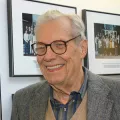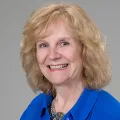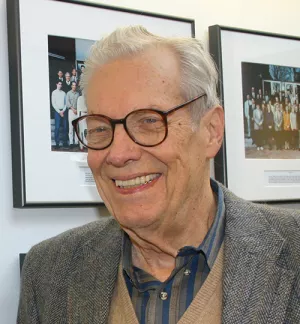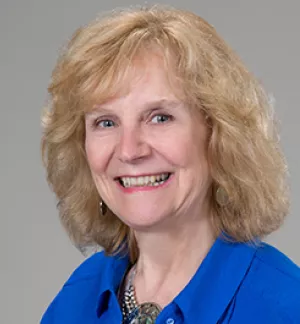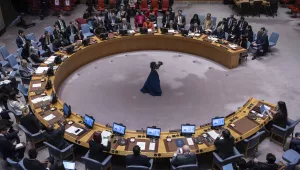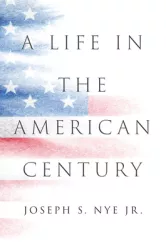Celebration of Paul Doty's 90th Birthday
Following is a transcript of the presentations that took place at a dinner event at Harvard University's Eliot House following Harvard's 2010 Paul Doty Lecture on June 3, 2010, in celebration of Belfer Center Founder Paul Doty's 90th birthday. It was hosted by Harvard's Department of Molecular and Cellular Biology and Harvard Kennedy School's Belfer Center for Science and International Affairs
Attendees included: Paul Doty, Jack Strominger, Graham Allison, Dorothy Zinberg, Michael Nacht, Jim Watson, Steven Miller, Ash Carter, Mark Ptashne, Matt Meselson, Karl Kaiser, Steve Harrison.
JACK STROMINGER:
We are here to celebrate Paul Doty's 90th birthday. I think we should begin by asking Graham Allison, the current director of the Belfer Center, to make a few remarks.
GRAHAM ALLISON: I went to a funeral last year for Al Gordon, who died at 106. I'm not sure Paul will make it to 106, but I'm certain he'll make it to 100.
One of the chapters of Paul's life that the scientists here may not know so much about, but that's been a major part of his life for the last 30-plus years, is the creation of a center called the Center for Science and International Affairs, now re-endowed as the Belfer Center for Science and International Affairs, of which I'm the director. And actually, when I was dean of the Kennedy School, the Center for Science and International Affairs that Paul founded was the first research center to be permanently established within the context of the Kennedy School.
Now, if we were allowed to tell Doty's stories, we would be here all night. And so, what Paul suggested when we talked today was that three of the founders who were there with him when the program was first established each have three minutes to make some comments about what it was like.
And then, a later arrival, Ash Carter, whom Paul and I recruited as an assistant professor at the Kennedy School a long time ago, and who is currently serving in Washington as the Undersecretary for Acquisition at the Department of Defense, who is the person through whom $2 billion dollars a day-- $2 billion dollars a day of your taxpayer monies-- flows. So, Ash can say "Up" or "Down" [laughter]. And, in the time he's been here today, which is only for a few hours, we figure he's spent enough to float Harvard for a long time--even though we're not buying any or selling any airplanes or ships.
When I think of Paul and the essence of what he did in building the Belfer Center, there are two attributes that I want to note. First, nobody whom I know has been consistently a better picker of talent. When one reviews the alumni of the Belfer Center, Ash being a stellar example, they have gone on to leadership roles in every area of international security in which the Center has taken an interest. It's just a spectacular list. And, I'm happy to say that some of those genes have passed on to people like Steve Miller, who now runs the International Security Program, who continues to pick remarkable people.
Second, Paul has taken more interest, over the course of his career, in nurturing of the people whom he recruits, and in their growth, and in their success, than any faculty member I've seen at Harvard. The basis on which a program which he had started in the Faculty of Arts and Sciences ultimately moved to the Kennedy School to become a permanently endowed center there - about which he was quite suspicious, if I tell the truth - was the proposition that people like Al Carnesale, who was one of the founding group, and Michael Nacht, would not have an opportunity to grow up to be professors in any other environment than in the dream of what could become a new professional School of government and public policy. And I would say, again, that was a brilliant choice and a great benefit to the school.
So, I am forever in his debt. Why don't we start with three minutes with Dorothy, and three minutes for Michael, and three minutes from Steve. And then, we'll let Ash wrap up for three minutes.
DOROTHY ZINBERG: I'm delighted to be here to wish Paul a happy birthday and to greet so many old friends. Having been a colleague, neighbor and friend of Paul's for 50 years, my remarks fall under the heading of "Lessons Learned."
The first one is, "Be tall. It intimidates your enemies and reassures your friends." [laughter]
"Next, marry someone who will make your parallel careers possible. Without Helga, Paul's lab would not be what it was for many, many years. Not only did Helga run the laboratory in his many absences but she also managed to conduct her own research and feed any number of stray post-docs. This tireless effort made much of Paul's arms control work possible as well as the dozens of trips to the then Soviet Union.
"Identify young talent. They will live to come to your 90th birthday." [laughter]
"Speak laconically. Everybody reads great profundity into the silence. [laughter] At the 20th anniversary celebrating the origins of CSIA [Editor's note: Center for Science and International Affairs], I read from my diary about the meetings at the Aspen Institute where many of the greats in the field quietly competed for funding from the Ford Foundation whose president McGeorge Bundy was present. I observed that when people were courting Mr. Bundy, Paul spoke little. Bundy was impressed, and the Center was born. After I read the entries, Mr. Bundy ran after me, laughing loudly. He exclaimed: "A diary? You're a menace!" Well, I'm not reading from it tonight. Instead I plan to publish it. [laughter]
"Cultivate a ‘Who, me?' response to honors." I went back and looked at my calendars. The first birthday party my husband, Norman Zinberg and I gave for Paul was in 1964. As far back as I can remember - and I went through every single calendar - there's never been a year when Helga or someone didn't give him a party. And, every year, he was surprised. [laughter]
"Never stop working, even when ostensibly at play." I think this is an underlying lesson.
I've also learned from Paul the importance of confounding everyone. Who would have thought that Chicora, Pennsylvania, Methodist hymns, and Boy Science Magazines, would have led to support for left wing causes where human rights were involved, Pug-wash, and quiet efforts for lost causes. Even International Security, the journal which everybody said, "Don't do it. You'll never get anywhere with it," was prescient. It is thriving today.
His brilliance has been harder to emulate although its importance has been evident in all of his many endeavors. Let me end by quoting Montaigne who wrote: "No man is a hero to his valet." Well, Paul, I would say this room is filled with a many of your valets, all of whom feel you are their hero in many different ways. Happy birthday.
[applause]
GRAHAM ALLISON: Michael Nacht has been the Assistant Secretary of Defense for Nonproliferation and was one of the original trio that Paul assembled. So, Michael.
MICHAEL NACHT: Thank you. Well, it really is a great honor and is great fun to be here. And, I worked for Graham a long time, so, when he says three minutes, he means three minutes. [laughter] Sorry if I'm really truncating it. I think, in reflecting about Paul, there are three issues I want to raise with you. One is the direction he gives. Also, the advice he gives, and the challenges he presents. And, I'm going to give a brief anecdote in each area.
Direction: I went through an oral exam with Paul and Graham and Jack Ruina and others in December '72, and was selected to be one of the new fellows of this new program of Science and International Affairs. And, as the meeting ended, Paul said to me, "You're selected. The program for Science and International Affairs begins July 1, 1973, at nine a.m., at Six Divinity Avenue, on the third floor. Be there." [laughter]
I said to myself, "Well, I was originally an engineer. Then I worked in the private sector. I'm not some sort of academic. I'll be there." I got there 8:30. There was nobody there. [laughter] The door was locked. And, this was a place where Kissinger had written Nuclear Weapons and Foreign Policies, surely one of his books that led to a Nobel Peace Prize. It was a very intimidating place.
Ten after nine, Moira Clark, who was the librarian, came up to me. She said, "Can I help you?" I said, "Yes. CSIA. Paul Doty. July 1, 1973, nine o'clock, third floor." And, she said-- Now, these were the first words I heard at Harvard-- "I never heard of CSIA." [laughter] "I never heard of you." [laughter] "Mr. Doty is in Europe for three weeks." [laughter] "I'll let you in. Sit down and read a book." [laughter]
That was a good start. So, that's direction. And, he gave me directions ever since.
Advice. Paul was often in the Soviet Union. And, at one time, he was asked to go, but, he was not given a visa because, I believe, he had met with Sakarov and was made persona non grata by the Soviet government. And, he said, "Okay, Nacht, you can go. You will join in with Garwin [Dick] and George Rathjens, and Herb York, and eminent people." He said, "Amazing opportunity."
And Paul, standing with Jack Ruina, said to me, "Just remember two things, Michael." This was the advice part. "Watch out for the menus and the piano." So, we fly to Moscow. We see a hotel which looked like a gulag. [laughter] And, there was a problem because one of our colleagues, George Rathjens, there was no record of him. They didn't have a room for him. So, let's go down and have a bite to eat, and they'll sort it out.
We're going down to have a bite to eat, and I remember Paul said, "Watch out for the menu." So, I look at the menu. Menu had 40 desserts. It was like - those of you from New York - like a Lindy's menu. Any of you know Lindy's? Probably. Forty desserts. And, I noticed there were only numbers next to five of them.
And then, someone in the group said, "You see, Michael, the 40 items are the desserts they'd like to be able to serve." [laughter] "The five items are the cost of, if they had it, what they'd charge for it." And, they had vanilla ice cream. [laughter] Which was quite good, by the way.
Then they said, "You know what? We figured out what to do with Rathjens." They said, "Upstairs in the lobby, there is a piano." [laughter] "And, on the piano is a man who is bedded down for the night." He was there with blanket and a pillow and all that. And they said, "This man has a train for the Ukraine at 11 o'clock, 11 p.m. Once he leaves, Rathjens can lie down on the piano." [laughter] And, he had the piano until the morning, when they had a room for him. So, the advice was tricky, but it was very valuable.
And now finally, we get to challenges. And, I tried to challenge my own colleagues in this area, but I've never come close to the challenges Paul provided for me. I was in the program. And one day, Paul's wonderful assistant, Barbara Stevens, who was an amazing person, hyper-loyal to Paul, would do anything for Paul, said to me, "Michael, I have a problem. I don't think you can solve it, but I'm going to tell you what the problem is. See what you can do."
I said, "Okay, what's the problem?" She said, "Mr. Doty has just called from Paris." "Yes." "And, he said to me, the following: ‘I have to meet a man. He has a hyphenated name. Three questions. What's his name? Where do I meet him? When? And, why?'" [laughter] I said, "Barbara, that's a fairly tough question. Enough of these eminent scientists." [laughter]
So, we did this and that, this and that. We found, in the back of one of the file cabinets, there was a note that Barbara had given to Paul a long time ago. Paul was developing a program in science and society at the Aspen Institute. And, he was going to interview an Italian as the candidate to run the program for him, who had a hyphenated name. [laughter] And, there was the note, his name, hyphenated, the café, the time, the date, we've got it. We've got it. I mean, I was orgasmically happy.
The next day, Paul called and he said, "So." And that meant, you know, "What have you got for me?" So, I told him date, time, the name of the guy, Aspen Institute, and all this. Then, I waited breathlessly for two weeks because Paul was away. He came back. I said, "Paul, how'd the session go with the guy?" He said, "Oh," he said, "I was so busy, I didn't have time." [laughter]
So, the direction, the advice, and the challenges that made Paul so much part of my heart. [laughter]
[applause]
PAUL DOTY: One point remains unresolved yet. And that is, that I felt it important to teach self-reliance. [laughter] And, the best way to teach it is not to be there. [laughter] And, this was misunderstood by nearly everybody. [laughter]
GRAHAM ALLISON: Steve Miller was an early fellow. Were you a fellow in the first group?
STEVEN MILLER: Not in the first, but in the early.
GRAHAM ALLISON: Okay, go ahead. Steve runs the International Security Program at the Belfer Center now and the Journal of International Security that Dorothy mentioned.
STEVEN MILLER: Well, those of you who are in the non-arms control side of this crowd will not know that it's always bad to follow Michael Nacht. [laughter] So, it's impossible to match the comedic content of his remarks. But I can make some more, more sober remarks and bring us back down from Mike's high.
I was one of the early fellows in the history of the center from the mid-1970s. And, I think it's safe to say that my entire professional career essentially was created by Paul's vision and his ability to create institutions and opportunities for young people. And, in my case, in multiple contexts because I spent much of my career in the Center for Science and International Affairs, which has had various variants of its name, but has always been, basically, Paul's brainchild. But also, I have been very active in Pugwash, in which Paul was one of the founding participants. I've been very active in the Committee on International Security Studies at the American Academy of Arts and Sciences, which is something that Paul also is very active in, from the earliest days.
In effect, Paul created, for people like me, a career opportunity that didn't previous exist in American academic life. And, this was an extraordinary opportunity for a young guy, to find a place where he could do what he wanted, be supported, be nurtured exactly as Graham said.
And, Paul always used to say, because I eventually got sucked up into the directing staff of the Center, that our principal product was people. We were interested in ideas. We were interested in publications. We were interested in visibility. We were interested in impact. But, the principal product of the Center was people.
And, if you look at the record of the Center, as Graham already intimated, over the course of these several decades, we're going on, now, 500 alumni of the Center for Science and International Affairs, now the Belfer Center. And, it is literally a "who's who" in the field of international security and arms control.
And, if you look all over the Obama administration, you'll find one person after another, including our dear colleague Ash, but many others. There's not a single major graduate training program in the country and, to some extent, in the world, that does not have one, and often multiple, alumni of our center on their faculties. If you go to every major research center in the field in Washington, and London, and elsewhere, what you'll find is alumni of Paul's Center.
And, in a very real sense, he helped to populate an entire discipline on a nationwide basis. And that, in my opinion, it's really a remarkable accomplishment. So Paul, on behalf of all of those who you've helped and whose careers you helped create, I offer you thanks.
[applause]
ASHTON CARTER: When I came to the Center, there was Dorothy, Michael, Paul, of course, Steve. And, of course Graham, who was the dean of the Kennedy School, and who embodied the whole spirit that the Center was about. I was a physicist, interested in practical affairs. And Paul taught us how to combine the spirit of science and the life of the mind with practical affairs. That's what the Center was about. That's what the Kennedy School was about.
It was a tremendously exciting experience for young people who had that inclination. These five people who are around the table were an inspiration to me. But today, you can look through the generations and see what a profound impact Paul had on so many careers. I'm now at the Department of Defense. And, as I look around the government, there is Michele Flournoy, my sister undersecretary; Michael Nacht, who, unfortunately, has departed the Department of Defense in the last few weeks, but was a spectacular contributor to it; John Holdren, who is over in the White House. I could go on and on and on.
And there's a generation below ours, and, sad to say, a generation below it. You walk down the halls of government, and there are people who would not be in the government, contributing the way they are, were it not for the Center for Science and International Affairs and for the Kennedy School. I see this every day. I say to myself, "Here comes Jennifer Bulkeley," the last student I had before I joined the Department. And there she is, walking proudly down the hall. She's a sinologist working on U.S./China relations. You have to ask yourself, "Who would be occupying those jobs, were it not for the Center?" And you can easily imagine the quality of the people who would be in those jobs were it not for its existence.
Of course, it's not just an American phenomenon. Go around the world. Every Ministry of Defense I visit, every Ministry of Foreign Affairs, I walk down the hall and somebody pops his or her head out and says, "Hi, Professor Carter. Remember me? I was in the class of so-and-so at the Belfer Center or in this class of so-and-so at the Kennedy School."
So Paul, you took an idea that was not obvious at the time, that seemed remote from the spirit of science, and you brought it into the practical world. There are generations of young people who are now doing what you wanted them to do, who would not be where they are were it not for the Center for Science and International Affairs at the Kennedy School, at Harvard.
This clear, palpable, and amazing legacy lies next to the legacy of science you leave. On behalf of all those people of my generation and the two generations below, we salute you and thank you.
[applause]
JACK STROMINGER: Well, I don't want us to forget that Paul was a scientist. [laughter] He was, in fact, the first chairman of the new Department of Biochemistry and Molecular Biology in 1967. In 1970, I became the second chairman. Sometime around '72 or '73, Paul came to me and said, "I would like to spend half-time at the Kennedy School. Would you support me?" And I said, "One of the privileges of being a tenured professor is that you should do what you think you're most able to do and where you think you can most contribute."
And, not long after that, another faculty member came to me and said, "There's a derelict institution in Cold Spring Harbor that I would like to try and revive. Would you like to support me in going half-time, or having some arrangement with Harvard, so I could go to Cold Spring Harbor and try to revive that institution?" That's Jim Watson, of course.
And, I said the same thing. The privilege of being a tenured professor is to do what you feel-- where you feel that you can most contribute. Jim also contributed one other thing. When Paul retired at age 70, a long time ago, Jim endowed the Doty Lectureship. So, we're all indebted to Jim for our dinner tonight. [laughter] [applause]
So, I'm going to ask Jim to introduce the science.
JIM WATSON: I think it's fair to say that for most, if not all of the scientists around this table, none of us would have been here without Paul. I guess I met Paul in Cambridge. But certainly, Paul was at the Harvard Symposium. It was 1953 when I came and first talked about the double helix.
And, the following summer, in '54, I had arranged to teach at Woods Hole. I remember going down to Woods Hole, going to see Paul and Helga, who I think lived in a big apartment building on Kirkland Street. And, I can't say first-but probably very soon, Paul told me that James Conant had transformed Harvard, making the Physics Department and the Chemistry Departments each both the best in the United States.
But, he had become ambassador to Germany before he could move onto biology. [laughter] So biology was just a little facet that needed to be changed in the way that physics and chemistry had done. If it wasn't for Paul and the Biology Department, I wouldn't have gone there as an assistant professor. And, I don't think I would have felt secure going there without Paul.
And, Paul reassured me that he was close to McGeorge Bundy, and that McGeorge Bundy saw making the Biology Department world-class one of his major objectives as dean. So the only problem was, how do you change a department? And, just getting me there was the first step.
And then, it was a crisis when Ed Wilson was offered-- considered an ad hoc because he had been offered a job at Stanford. And, Paul came to my rescue and Bundy's, who said the ad hoc committee should consider both me and Ed, which they did, and recommended that both of us be promoted.
The Biology Department didn't know enough about me and wanted more time, which led to a crisis. But, I think, again, without Paul, McGeorge Bundy wouldn't have told the Biology Department who I was. And, that led to the next person it was clear we wanted to get, who was Matt Meselson. And, that led to a big ad hoc, where Bundy said there could be five positions. And, one of those was Matt. It was a compromise
But then, the next crisis was Wally Gilbert, who started doing experiments in our lab the summer of 1960. And, how would we get an appointment from Wally. But, I think Paul was working behind the scenes with Arthur Solomon. And suddenly, Wally was an associate professor of biophysics. [laughter]
And, the next time was Mark who - you had a strange position. [laughter]
MARK PTASHNE: I was a lecturer.
JIM WATSON: This was just the time when the department was forming. And, next was Steve Harrison and Don Wiley. And, by then, I think we were probably as good as any place in the country. I think we have achieved what Bundy wanted and, with what Paul did, we were equal with the Chemistry Department.
So, I think we all owe Paul our jobs. And, the fact that, during those days, it was just a total pleasure to be a member of the Harvard faculty. I think it was Paul who probably got me into being a senior fellow, which much enriched my life. And, I remember this room, really, as a place where I could see disciplines other than the biology.
The 20 years I was here, there was no better place in the world. And, Paul was always after this. Paul saw the things happen. But, you never saw Paul as someone who wanted power. Paul just wanted Harvard to be the best, and that was it.
And, they put up with me during all my unmarried years. [laughter] You know, it was either Wally or Paul. [laughter] But, it's very important, to have someone. So, I guess you can say Paul was my mentor. There was never a finer person on the Harvard faculty. And, someone should ensure that University Hall has a big portrait of Paul.
ALL: Yes.
JIM WATSON: Because he changed the university. [applause] Now, I think other people may want to say something. Matt Meselson was the second person Paul really got to Harvard in biology. [applause]
PAUL DOTY: Just to balance a little bit of what Jim has said. I did have the experience of bumping into Ed Wilson the day that Jim announced that he was going part-time to Cold Spring Harbor to revive it. And, Ed's reply was, "Jim is going to revive Cold Spring Harbor? I wouldn't put him in charge of a lemonade stand." [laughter] And now, it's a $100 million dollar a year operation. [laughter]
Just one more thing, which I'm sure will pass with my own passing, but gives me some pleasure to reflect upon. And that is that my self-reliance remark did not go amiss, that I did tend to my research students. And, the result is that ten of them have been elected to the National Academy of Sciences. I'm pretty sure this is a record. But one cannot verify it. And so, that is a pleasure, too.
JACK STROMINGER: Nearly all the members of the Department of BMB are here, who are surviving. [laughter] There are three deceased members: Konrad Bloch, John Edsall and Don Wiley. And, there are two who could not come. Jim Wang is in Taipei and Doug Melton is in Finland getting an honorary degree.
JIM WATSON: That's very good. [laughter]
JACK STROMINGER: So, I think Matt should be the next one to say something.
MATT MESELSON: I'll be brief. It was Camelot. The Department of Biochemistry and Molecular Biology lasted 27 years before our dean at that time dissolved it. Not Henry Rosovsky, who was always our best friend.
It was a department of 16 members, of which I think 14 were members of the National Academy and three Nobel Prizes. There was nothing anywhere near it in the United States or anywhere else in the world at that time. It couldn't continue. It was Camelot.
The thing I said about Paul to the scientists earlier today, maybe I should repeat to the non-scientists who are here this evening. It was about something I read in one of Paul's diaries that I found in the Harvard archives yesterday. It was his second trip to Moscow, 1960. He had been there once before, in '58. There would be dozens more.
Paul, at the end of the long diary for that trip, you wrote that you discovered that scientists in Russia were about as open and friendly as if you had been visiting scientists in Western Europe. And, this might -- this insight, this discovery -- might somehow be developed into a bridgehead -- that was the word you used -- a bridgehead to achieve better understanding on matters of international conflict.
So, oppose this to what Senator Richard Russell thought, who was the chairman of the Committee on Armed Services during the Cuban Missile Crisis and from a little town in Georgia. He said to Jack Kennedy -- you can read this in Graham Allison's book, or you could hear it, it's a tape recording at the Kennedy Library -- Russell is telling President Kennedy that "Now would probably be an auspicious time -- because it is going to happen anyway-- to start the nuclear war." This is not a minor congressman; he was the Chairman of the Senate Committee on Armed Services.
What Paul did was to begin, through scientists who had contact with high officials in government on both sides, to begin to impart a kind of seriousness to discussions of the peril of nuclear weapons that eventually displaced people like Senator Russell and Curtis LeMay, who was there with Kennedy too, arguing for invasion of Cuba, not knowing that there were missiles with nuclear warheads in Cuba.
So, it seemed to me looking at it from a distance that by organizing scientists who could approach these problems of international affairs with something like an engineering approach, you have a problem to solve -- how do you do it? By being honest with each other. And since they were not themselves in power they could say what they wanted to each other, pretty much. That was the great contribution. It may have saved us.
[applause]
MARK PTASHNE: Paul combines charm and intellect with a profound understanding of how to get others to pay attention. I learned this as a graduate student in Paul's course at Harvard on physical chemistry. He arrived fashionably late, just back from a big deal treaty negotiation with the Germans (so it was said) and, upon being informed by his teaching assistant that today's topic was Boyle's Law, he put on a virtuosic display of his mastery of mathematical physics. He filled the board with equations, inserting Paulisms along the way - the "naked X" vs the "decorated X" (e.g. X vs X squared). Finishing just in time, we saw the conclusion: as the pressure on a gas increases, it expands. Paul bid us a cheerio, and left us to ponder just where the missing minus sign should be inserted. All in all, it is this Harvard lecture, with its implied message, that I remember above all others.
STEVE HARRISON: I'll just recall that Paul is responsible, in part, for why I moved from physics and chemistry to biology when I was a senior at Harvard. I took the course that he taught with John Edsall. And that experience probably pretty much set me in my evil ways! So I'll simply thank him for that and for a special kind of seriousness of science. At the time, I didn't understand his remarkable international perspective. But the wonder of molecules was something that I think set my own course for a long time.
[applause]
KARL KAISER: As some of you probably don't know, I was, in my previous existence, director of the German Council on Foreign Relations for quite a number of years. And, I was also occasionally an advisor to Chancellor Helmud Schmidt, who was the only chancellor who was a true expert on strategic questions and arms control, probably was the only one who could write a decent book since Bismarck.
Last year-- I see him regularly-- I was in Berlin, and we were talking. He's 91. He was smoking, probably, his third pack [laughter] of the day. And suddenly, out of the blue, he said, "Is Paul Doty at Harvard still alive?" I said--laughing, "Paul Doty? He is well. I had lunch with him last week. He's in very good shape." He asked me to pass on his regards to him.
And, this reminds us that, in the view of those who are in the European arms control community, Paul is one of the people who played an extremely important role in being a moderating and rational voice in dealing with the nuclear issue.
Helmud Schmidt personally told me that, when he became Defense Minister, he discovered that there was a secret plan to have nuclear mines along the entire intra-German border, which would go off more or less automatically if a war started. And he killed the project in quiet cooperation with his then counterpart in Washington, Melvin Laird. This episode demonstrated to Schmidt that there was a rational part in the U.S. Administration that had a very different view on nuclear weapons than others.
And, Paul was a member of the rational part. Moreover, what was particularly appreciated in Paul's role was that he provided a channel between east and west and with Russian scientists. During the Cold War that's what Europeans very much cared about.
Looking back at that period, I think its one of the great wonders of the last century that nuclear weapons did not go off. We should be profoundly grateful for that. And, I think it is very much due to the community of people, of which Paul was one of the leading members. This is a moment to say thank you for that.
[applause]
PAUL DOTY: I spent a lot of time in Berlin. And, on two occasions I scraped together out of my notes, one very quickly, that my first trip there was in 1964 with Henry Kissinger to some conference in the concert hall next to the wall that was just being dedicated. So, we bought our tickets and went.
There was a great requiem being played. At intermission, we went out and the lights came on. The machine guns came on. And, the people groaned. And so, we had to go back in. And we learned, the next day, two people tried to cross the wall and one had been killed.
Then, the next day, just to make things more complicated, I was told by my friends that a very important German was expected to cross the border in the car for pick up at a certain bar in Kurfürstendamm, 11 a.m. So, I went there, and the car did come up. And, all the rivets came out. And finally, this poor chap, almost dead, emerged, and was taken into the bar. And, he was obviously astounded that, at 11 o'clock, the bar was open, people were drinking, and bare-breasted ladies were dancing on the bar.
And, he had that little period of a couple hours to recover. And, I went back to see him. He said -- I should point out that this was the secretary to Honecker, and a true defector. He said, "My first impressions were, I made a mistake. The West is going to lose." [laughter] He became a professor at Yale. [laughter]
JACK STROMINGER: Well, I think we should enjoy our coffee and dessert and end with that. And, I saw an obituary in the New York Times a few days ago of ....
PAUL DOTY: Not mine. [laughter]
JACK STROMINGER: ...the founder of a new school of dancing in Japan, who passed away at 103, and danced until he was 101. So, I would like to invite you all, a decade from now, to Paul's 100th birthday celebration.
[applause]
PAUL DOTY: Well, thank you all. It's nice to hear generous things that you have to divide by two or three. But, that was nice.
[Happy Birthday sung]
END
“Paul Doty 90th Birthday Celebration.” Wilke, Sharon, ed. Summer 2010

